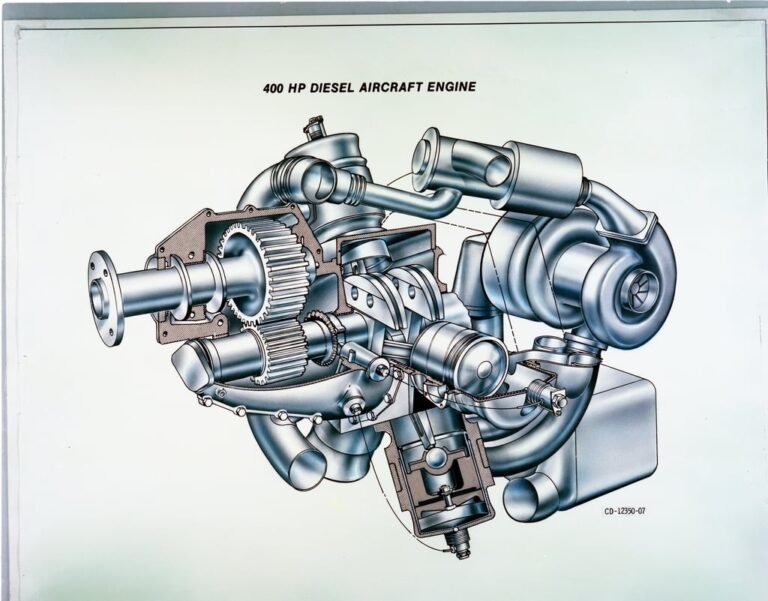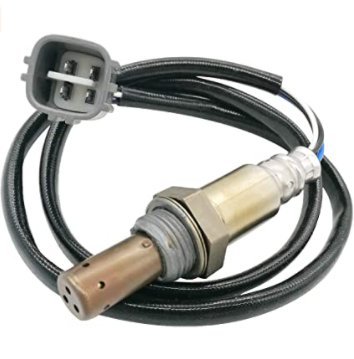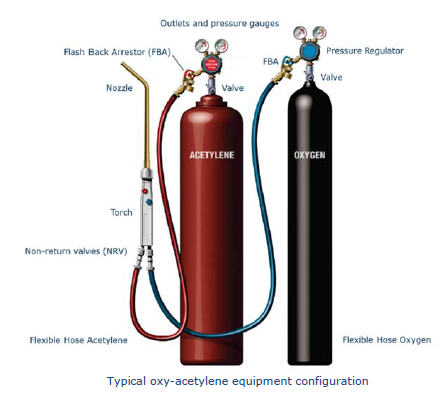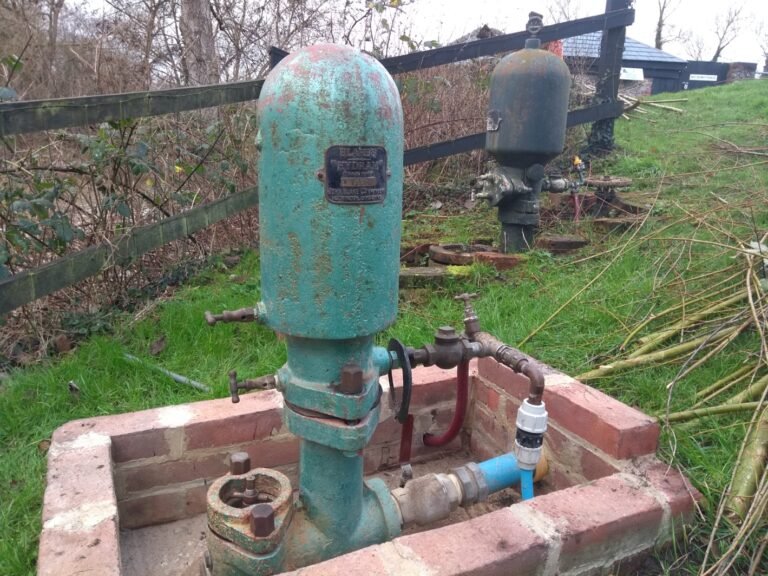How to Make a 4 Cylinder Sound Deeper: Sonic Boost Secrets
To make a 4 cylinder sound deeper, consider installing a performance exhaust system for enhanced engine acoustics. Upgrading to a high-flow muffler can also amplify the exhaust note, giving it a deeper tone.
Additionally, tuning the engine to run slightly rich can produce a more aggressive sound. Another option is to install a cold air intake to improve airflow and create a deeper engine growl. These modifications can help achieve a more resonant and powerful sound from a 4 cylinder engine, enhancing the overall driving experience.
The Appeal Of A Deep Engine Roar
There’s something undeniably captivating about the deep, resonant sound of a powerful engine at full throttle. Whether it’s the low rumble of a muscle car or the throaty growl of a sports car, a deep engine roar commands attention and exudes a sense of power and performance. For many automotive enthusiasts, the sound of a 4-cylinder engine can be enhanced to produce a deeper, more aggressive tone, adding to the overall appeal of the vehicle.
Cultural And Personal Preferences
Cultural preferences play a significant role in shaping our perception of a vehicle’s sound. In some cultures, a deep engine roar is associated with power, strength, and masculinity, making it highly desirable. Personal preferences also come into play, as individuals are drawn to the distinctive sound of a deep engine, which can evoke a sense of excitement and exhilaration.
Influence On Vehicle Perception
The sound of a vehicle’s engine has a profound influence on how it is perceived. A deep, resonant engine roar can create an impression of speed, performance, and dominance, elevating the overall appeal of the vehicle. It can also contribute to the perception of a vehicle as being more aggressive, sporty, and high-performance, influencing the way it is regarded by enthusiasts and casual observers alike.
Understanding Engine Acoustics
To enhance the deep sound of a 4-cylinder engine, consider installing a performance exhaust system. Upgrading the intake system and adding a resonator can also help achieve a richer, more aggressive exhaust note. Additionally, tuning the engine’s fuel and ignition timing can further improve the overall acoustics.
Basics Of Sound Production
Sound is produced by the vibration of objects, and engines are no exception. In an engine, sound is created by the movement of air and fuel through the combustion process, as well as the movement of mechanical components, such as pistons and valves. The sound produced by an engine can be affected by various factors, including the number of cylinders, the design of the exhaust system, and the type of engine.
Factors Affecting Engine Sound
There are several factors that can affect the sound of a 4-cylinder engine. One of the most significant is the exhaust system. The exhaust system is responsible for channeling the sound produced by the engine out of the vehicle. The design of the exhaust system can have a significant impact on the sound produced by the engine.
Another factor that can affect the sound of a 4-cylinder engine is the air intake system. The air intake system is responsible for bringing air into the engine. The design of the air intake system can also affect the sound produced by the engine.
The number of cylinders in an engine can also affect the sound it produces. Generally, the more cylinders an engine has, the deeper and more powerful the sound will be. However, there are other factors that can influence the sound produced by the engine, such as the design of the engine and the exhaust system.
In conclusion, understanding engine acoustics is important when it comes to making a 4-cylinder engine sound deeper. By considering factors such as the exhaust system, air intake system, and number of cylinders, you can make modifications to your engine to achieve the desired sound.
Comparing Engine Types
When it comes to car engines, there are different types that produce varying sounds. The sound of a car engine can be a defining factor for many car enthusiasts. If you’re looking to make a 4 cylinder sound deeper, it’s important to understand the characteristics of 4 cylinder engines and how they contrast with V6 and V8 engines.
Characteristics Of 4 Cylinder Engines
4 cylinder engines are known for their fuel efficiency and compact size. They have four cylinders arranged in a straight line, which means they produce a distinctive sound. The sound of a 4 cylinder engine is often described as buzzy or whiny, which can be unappealing to some car enthusiasts.
However, there are ways to modify the sound of a 4 cylinder engine to make it sound deeper and more aggressive. One way is to install an aftermarket exhaust system that features larger pipes and mufflers. This can help to amplify the sound of the engine and give it a deeper tone.
Contrast With V6 And V8 Engines
V6 and V8 engines are larger and more powerful than 4 cylinder engines. V6 engines have six cylinders arranged in a V shape, while V8 engines have eight cylinders arranged in a V shape. These engines produce a deeper and more rumbling sound compared to 4 cylinder engines.
However, modifying the sound of a V6 or V8 engine can also be achieved through aftermarket modifications. Installing a cold air intake or a high-performance exhaust system can help to improve the sound of the engine and make it sound more aggressive.
| Engine Type | Number of Cylinders | Sound Characteristics |
|---|---|---|
| 4 Cylinder | 4 | Buzzy or whiny |
| V6 | 6 | Deeper and rumbling |
| V8 | 8 | Deepest and most aggressive |
- Upgrading the exhaust system can give any engine a deeper sound.
- Adding a resonator can also help to improve the sound of the engine.
- Modifying the engine’s air intake can improve the sound quality as well.
In conclusion, the sound of a car engine can be modified through aftermarket modifications. Understanding the characteristics of 4 cylinder engines and how they contrast with V6 and V8 engines can help you choose the right modifications to achieve the desired sound for your car.
Initial Steps Before Modifying Sound
Before making any modifications to your 4-cylinder engine’s sound, it’s important to take some initial steps to ensure that you are within legal regulations and that your vehicle is in good condition.
Assessing Your Vehicle’s Condition
Before modifying your 4-cylinder engine’s sound, it’s crucial to assess the overall condition of your vehicle. Inspect the exhaust system, muffler, and engine for any leaks, damage, or wear and tear. Address any necessary repairs or maintenance to ensure that your vehicle is in optimal working condition.
Legal Considerations And Regulations
Before embarking on any modifications, it’s essential to be aware of the legal considerations and regulations regarding vehicle sound modifications in your area. Research local noise ordinances and regulations to ensure that any modifications you make comply with the law. Failure to adhere to these regulations could result in fines or legal consequences.
Exhaust System Modifications
When it comes to modifying your car’s exhaust system to make your 4-cylinder engine sound deeper and more powerful, there are a few key factors to consider. One of the most effective ways to achieve a deeper exhaust note is through exhaust system modifications. By choosing the right exhaust system and installing it properly, you can maximize the impact and enhance the overall sound of your vehicle.
Choosing The Right Exhaust
Choosing the right exhaust system is crucial in achieving the desired deeper sound for your 4-cylinder engine. There are various options available, including cat-back exhaust systems, axle-back exhaust systems, and header-back exhaust systems. Each type offers different benefits and sound characteristics, so it’s important to consider your preferences and the specific needs of your vehicle.
Here are a few key factors to keep in mind when choosing an exhaust system:
- Material: Stainless steel exhaust systems are known for their durability and resistance to corrosion, while aluminized steel systems offer a more budget-friendly option.
- Diameter: A larger diameter exhaust system can help improve exhaust flow and enhance the overall sound.
- Design: Some exhaust systems feature straight-through mufflers or resonators, which can create a deeper and more aggressive sound.
- Brand: Research reputable brands known for producing high-quality exhaust systems to ensure you get the best performance and sound.
Installation Tips For Maximum Impact
Proper installation is essential to maximize the impact of your exhaust system modifications. Here are some installation tips to consider:
- Professional Installation: Unless you have experience with exhaust system installations, it’s recommended to have a professional perform the installation to ensure it’s done correctly.
- Secure Fitment: Ensure that all components of the exhaust system fit securely and tightly to prevent any leaks or rattling noises.
- Alignment: Properly align the exhaust system to ensure it’s centered and symmetrical.
- Tighten Bolts: Make sure all bolts and clamps are properly tightened to avoid any loose connections that may cause noise or vibration.
- Clearance: Check for proper clearance between the exhaust system and other components of the vehicle to prevent any unwanted contact or damage.
By following these tips and choosing the right exhaust system, you can make your 4-cylinder engine sound deeper and more powerful. Remember to consider your preferences, consult with professionals, and prioritize proper installation to achieve the best results.
Intake System Tweaks
Intake system tweaks can have a significant impact on the sound of your 4-cylinder engine. By making adjustments to the intake system, you can achieve a deeper and more aggressive exhaust note, enhancing the overall driving experience. In this section, we’ll explore the benefits of aftermarket intakes, as well as the installation and tuning process.
Benefits Of Aftermarket Intakes
Upgrading to an aftermarket intake system offers several advantages. Improved airflow allows the engine to breathe more efficiently, resulting in enhanced performance and a more pronounced engine sound. Aftermarket intakes also often feature a sportier design, adding a visual appeal to the engine bay.
Installation And Tuning
Installing an aftermarket intake typically involves removing the stock airbox and replacing it with the new intake system. Tuning may be necessary to optimize the air-fuel mixture and ensure the engine operates at its best. This process may require adjusting the ECU or utilizing a standalone engine management system for precise calibration.
Engine Tuning And Ecu Remapping
Enhancing the sound of a 4-cylinder engine involves more than just superficial modifications. The key lies in optimizing the engine’s performance through engine tuning and ECU remapping.
Role Of Ecu In Engine Performance
The ECU (Engine Control Unit) is the brain of a vehicle, controlling various aspects of engine operation. Through programming, it manages fuel injection timing, air-fuel ratio, and ignition timing to optimize engine performance.
How Tuning Can Alter Sound
Engine tuning involves adjusting parameters to optimize power output. By fine-tuning fuel and air mixture, ignition timing, and other factors, the engine’s performance is enhanced, leading to a deeper and more aggressive sound.
Additional Tips For A Sonic Boost
Boost the sound of your 4-cylinder engine with these additional tips. From upgrading your exhaust system to installing a performance air intake, these simple modifications can make your car sound deeper and more powerful.
Isolating Vibrations
Using rubber or polyurethane mounts can help dampen vibrations.
Upgrading Engine Parts
Consider upgrading the exhaust system for a deeper sound.
Maintaining The Deep Tone
Ensuring that your 4-cylinder engine maintains a deep and powerful sound requires consistent care and attention. By following a regular maintenance schedule and monitoring for any potential issues, you can preserve the quality of the engine’s tone over time.
Regular Maintenance Schedule
- Change oil and filters every 3,000-5,000 miles.
- Inspect and replace spark plugs as needed.
- Check exhaust system for leaks or damage.
- Ensure proper functioning of the catalytic converter.
Monitoring For Issues
- Listen for any changes in the engine sound.
- Look for smoke or unusual odors coming from the exhaust.
- Monitor fuel efficiency for any sudden drops.
- Address any warning lights or alerts immediately.
Realistic Expectations And Results
When modifying a 4 cylinder engine to sound deeper, it’s crucial to have realistic expectations about the outcomes. Understanding what to anticipate from the modifications and looking at case studies and examples can help set the right expectations.
What To Anticipate From Modifications
- Increased engine noise levels
- Deeper tone during acceleration
- Potential improvement in overall exhaust note
Case Studies And Examples
Exploring real-world examples of modified 4-cylinder engines can provide insights into the achievable results. These case studies showcase the impact of various modifications on the sound profile, helping enthusiasts make informed decisions.
Conclusion
To make your 4-cylinder engine sound deeper, it’s important to explore different methods that enhance the exhaust note without compromising its performance. By installing a quality aftermarket exhaust system, using resonator or muffler deletes, or considering an engine tune, you can achieve a deeper and more satisfying sound.
However, it’s crucial to remember that modifying your vehicle’s exhaust should be done responsibly and in compliance with local regulations. With the right approach, you can enjoy a more aggressive and captivating engine sound from your 4-cylinder vehicle.
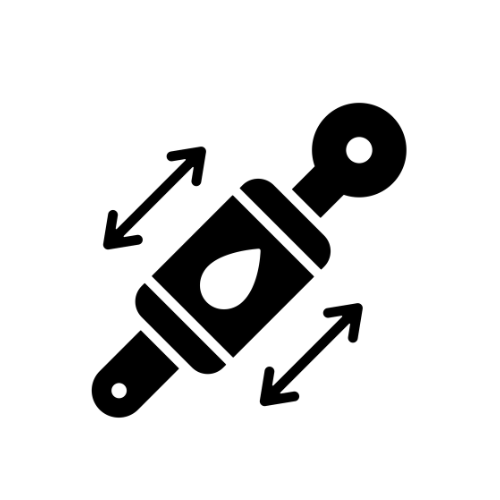
Our mission is to be your trusted resource for everything related to car cylinders.
